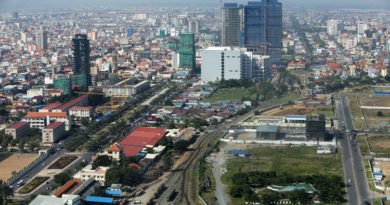ASEAN manufacturing start Q2 2018 on faster recovery
 MANILA, Philippines — Manufacturing conditions in ASEAN started the second quarter on a faster recovery, helped by faster increases in new orders, output and hiring, according to the Nikkei ASEAN Manufacturing Purchasing Managers’ Index (PMI).
MANILA, Philippines — Manufacturing conditions in ASEAN started the second quarter on a faster recovery, helped by faster increases in new orders, output and hiring, according to the Nikkei ASEAN Manufacturing Purchasing Managers’ Index (PMI).
The headline ASEAN PMI rose to 51.0 last month from 50.1 in March as most countries in the region reported an improvement in the health of their manufacturing sector.
Factory conditions in Myanmar topped those of other countries in the region with a PMI reading of 55.5 while Vietnam and the Philippines followed suit, both registering a PMI of 52.7.
Other countries that registered expansion during the reference period were Indonesia (51.6) and Singapore (51.1). Manufacturing conditions in Thailand and Malaysia, meanwhile, contracted with PMI readings of 49.5 and 48.6, respectively.
.
The headline PMI is a composite index based on five key indicators: new orders, output, employment, suppliers’ delivery times and inventories of inputs. It is designed to provide a quick snapshot of the performance of the manufacturing sector each month. A reading above 50 indicates improvement while below 50 a contraction.
Client demand improved across the region in April, with data suggesting stronger domestic demand was a key driver of growth, said IHS Markit the firm that collected data for the PMI.
As sales rose, firms hired more workers but growth in jobs were marginal, said IHS Markit.
There was also increased input buying during the month, but longer delivery times were noted as there were reports of supply shortages across the region for raw materials such as paper and industrial metals.
On the price front, higher cost burdens were seen again in April, with Filipino manufacturers facing the strongest rise in purchasing costs across the region.
“Higher costs led manufacturers to raise their selling prices to help protect profit margins, with the Philippines registering the steepest rate of charge inflation,” said the report.
IHS Markit principal economist Bernard Aw said demand – both domestic and external – need to grow faster before stronger growth can be sustained.
“While April survey data was encouraging, it’s clear that demand needs to grow at a faster rate before stronger growth can take root,” he said. / Czeriza Valencia (The Philippine Star) – May 8, 2018 – 12:00am / All photographs, news, editorials, opinions, information, data, others have been taken from the Internet ..aseanews.net | [email protected] | For comments, Email to : Pahulu Gan – Contributor | [email protected]









